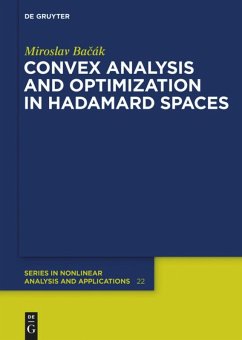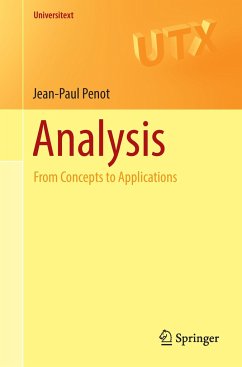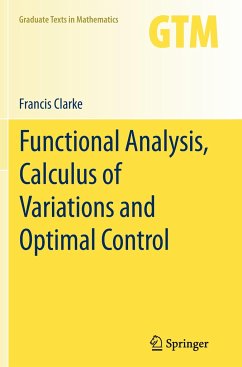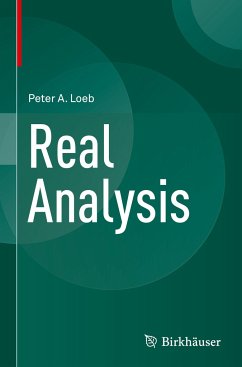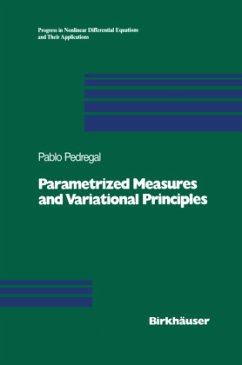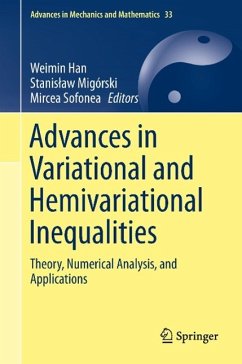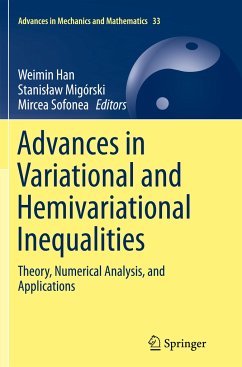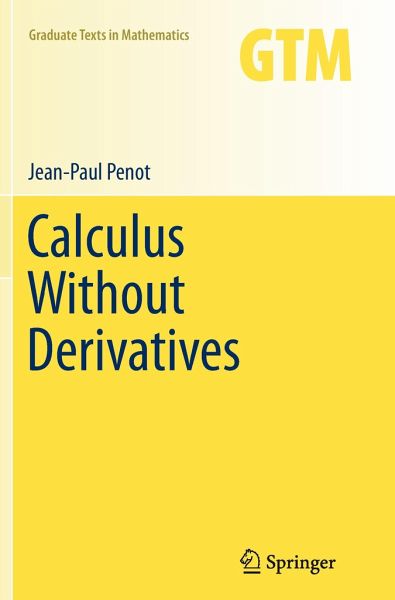
Calculus Without Derivatives
Versandkostenfrei!
Versandfertig in 6-10 Tagen
49,99 €
inkl. MwSt.
Weitere Ausgaben:

PAYBACK Punkte
25 °P sammeln!
Calculus Without Derivatives expounds the foundations and recent advances in nonsmooth analysis, a powerful compound of mathematical tools that obviates the usual smoothness assumptions. This textbook also provides significant tools and methods towards applications, in particular optimization problems. Whereas most books on this subject focus on a particular theory, this text takes a general approach including all main theories.In order to be self-contained, the book includes three chapters of preliminary material, each of which can be used as an independent course if needed. The first chapter...
Calculus Without Derivatives expounds the foundations and recent advances in nonsmooth analysis, a powerful compound of mathematical tools that obviates the usual smoothness assumptions. This textbook also provides significant tools and methods towards applications, in particular optimization problems. Whereas most books on this subject focus on a particular theory, this text takes a general approach including all main theories.
In order to be self-contained, the book includes three chapters of preliminary material, each of which can be used as an independent course if needed. The first chapter deals with metric properties, variational principles, decrease principles, methods of error bounds, calmness and metric regularity. The second one presents the classical tools of differential calculus and includes a section about the calculus of variations. The third contains a clear exposition of convex analysis.
In order to be self-contained, the book includes three chapters of preliminary material, each of which can be used as an independent course if needed. The first chapter deals with metric properties, variational principles, decrease principles, methods of error bounds, calmness and metric regularity. The second one presents the classical tools of differential calculus and includes a section about the calculus of variations. The third contains a clear exposition of convex analysis.





